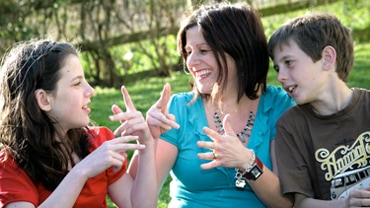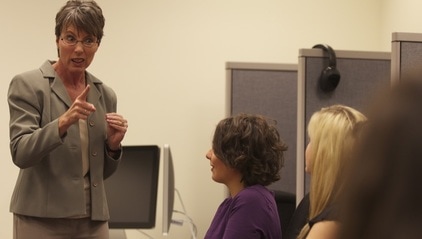|
Explore our website to learn more about this unique program and about the interpreting field. Next, enter your contact information on the application page to request additional information. |
Are you a heritage language user of ASL (a Coda, Mother-Father-Deaf, Deaf-parented)? Are you considering using your native ASL talents to develop a career in ASL/English interpreting? Do you possess an innate understanding of the Deaf community? If so, we have developed a program to support your goal of working as a professional ASL/English interpreter. The program has been developed by heritage language users (Codas) and includes several options for online training, education and mentoring. The training is offered at no cost and is available in many areas in North America. |
The Compass ProgramThe Compass program contains several separate components that are designed to support your journey to becoming a professional interpreter, regardless of where you start. Our programs focus on:
Unlike a college training program, the path that applicants take when they begin Compass is individualized and depends on each person's background and experience, as determined during the application process. |
The Coda experienceA common part of the Coda experience is being a heritage language user, which is a term that refers to an individual who was raised in a home where a language other than English was used, in this case, American Sign Language.*
Find out more about:
*Valdes, G. (2000). Spanish for Native Speakers. ASTSP Professional Development Series Handbook for Teachers in K-12. Fort Worth: Harcourt College Publishers. |
The Interpreting Profession
The interpreting profession is rich with Coda involvement, from the beginnings of the profession to the leadership in current interpreter organizations and interpreter certification. Learn more about the profession of interpreting, resources for further information, and requirements to work as a professional interpreter in your state.
|


